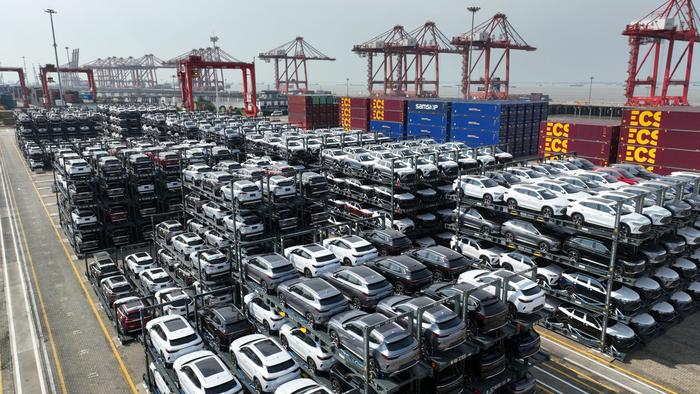
In mid June, the European Commission issued a statement stating that it plans to impose a temporary countervailing duty of up to 38.1% on electric vehicles imported from China starting from July 4th.
One stone stirred up a thousand waves, and the statement was met with opposition from multiple parties. A spokesperson for the Chinese Ministry of Commerce stated that the European side disregarded facts and WTO rules, disregarded China's repeated strong opposition, and disregarded the calls and dissuasions of multiple EU member state governments and industries. China is highly concerned and strongly dissatisfied with this, and the Chinese industry is deeply disappointed and firmly opposed. Both Mercedes Benz and Volkswagen have expressed opposition.
BMW believes that this measure by the European Commission is a wrong decision and will also harm Europe's own interests. This approach is biased and may not be suitable for strengthening the competitiveness of the European automotive industry, and may lead to significant trade conflicts; Mercedes Benz stated that allowing protectionism to rise will have serious negative consequences; Volkswagen claims that increasing tariffs on Chinese electric vehicles by the European Union is more harmful than beneficial and will definitely have a negative impact. Earlier, the European Commission revealed that it would increase tariffs on China's electric vehicle exports, with tax rates possibly ranging from 10% to 25%; Actually, since last year, Europe has been on the alert because China's new energy vehicles are being exported in large quantities overseas, causing a serious decline in sales of electric vehicles in Europe, which has made Europe wary in certain aspects. Therefore, they have accelerated the implementation of some restrictive policies on Chinese electric vehicles
As is well known, the export of bulk commodities has never been a simple matter. The export of electric vehicles from China is strictly carried out in accordance with relevant regulations of other countries. Chinese car companies have been actively cooperating with some investigations from European countries for a long time, and even have some harsh additional conditions, which Chinese car companies have strictly complied with.
Throughout history, European countries have maintained relatively barbaric hegemony, and imposing tariffs on Chinese electric vehicles this time is a blatant form of hegemony. Fair competition should be an eternal theme in any era, but Europe's use of such tough measures to hinder normal trade activities of other countries and disrupt the world economic order. So why did the EU adopt such measures?
One is that they are afraid that China's electric vehicle exports will affect their interests. Chinese electric vehicles have excellent performance, low prices, and naturally have higher sales than local European products. BYD's sales in EU countries have started to grow rapidly, approaching half of Tesla's sales in Austria and a 27 fold year-on-year increase in sales in the UK in May, which has caused strong dissatisfaction among them.
One is that the European Union believes that China's electric vehicle exports affect their interests. Chinese electric vehicles have excellent performance, low prices, and naturally have higher sales than local European products. BYD's sales in EU countries have started to grow rapidly, approaching half of Tesla's sales in Austria and a 27 fold year-on-year increase in sales in the UK in May, which has caused strong dissatisfaction among them.
Secondly, the European Union believes that China's electric vehicle value chain benefits from unfair subsidies, with a large number of related products flooding into the EU at artificially low prices, posing an "obvious and imminent threat of damage" to the EU's electric vehicle industry.
Thirdly, European trade protectionism is becoming increasingly severe under the influence of right-wing conservatives.
Under the influence of EU tariffs, Chinese brands such as BYD and Geely still have considerable competitiveness. These companies have already established factories in EU countries and are preparing for localized production. EU tariffs will only accelerate this process. Moreover, the trend of European cars falling behind China's technology is irreversible, and the technological advantages of Chinese car companies are exactly what EU countries need. Therefore, the trend of Chinese electric vehicles going global is unstoppable.

Driven by the Trump administration's push to relax financial regulations and the recovery of investment banking business, the market value of the six major banks in the United States has cumulatively increased by approximately 600 billion US dollars by 2025.
Driven by the Trump administration's push to relax financia…
On Christmas evening, U.S. President Trump posted on social…
According to multiple foreign media reports, the recent fin…
The middle class, once regarded as the cornerstone of Ameri…
On December 19th local time, the US military launched a lar…
The Boxing Day sunshine should have cast a false glow of pr…